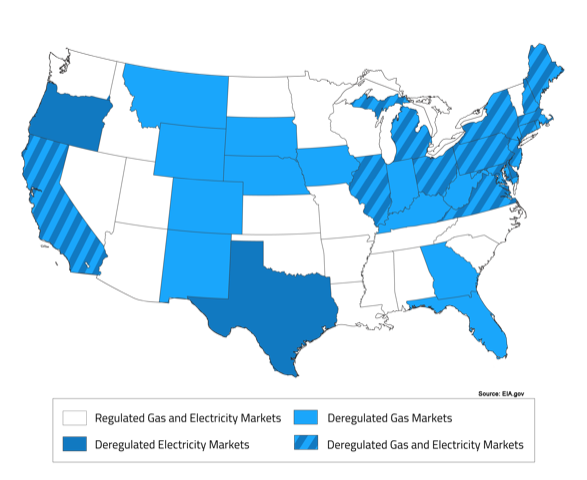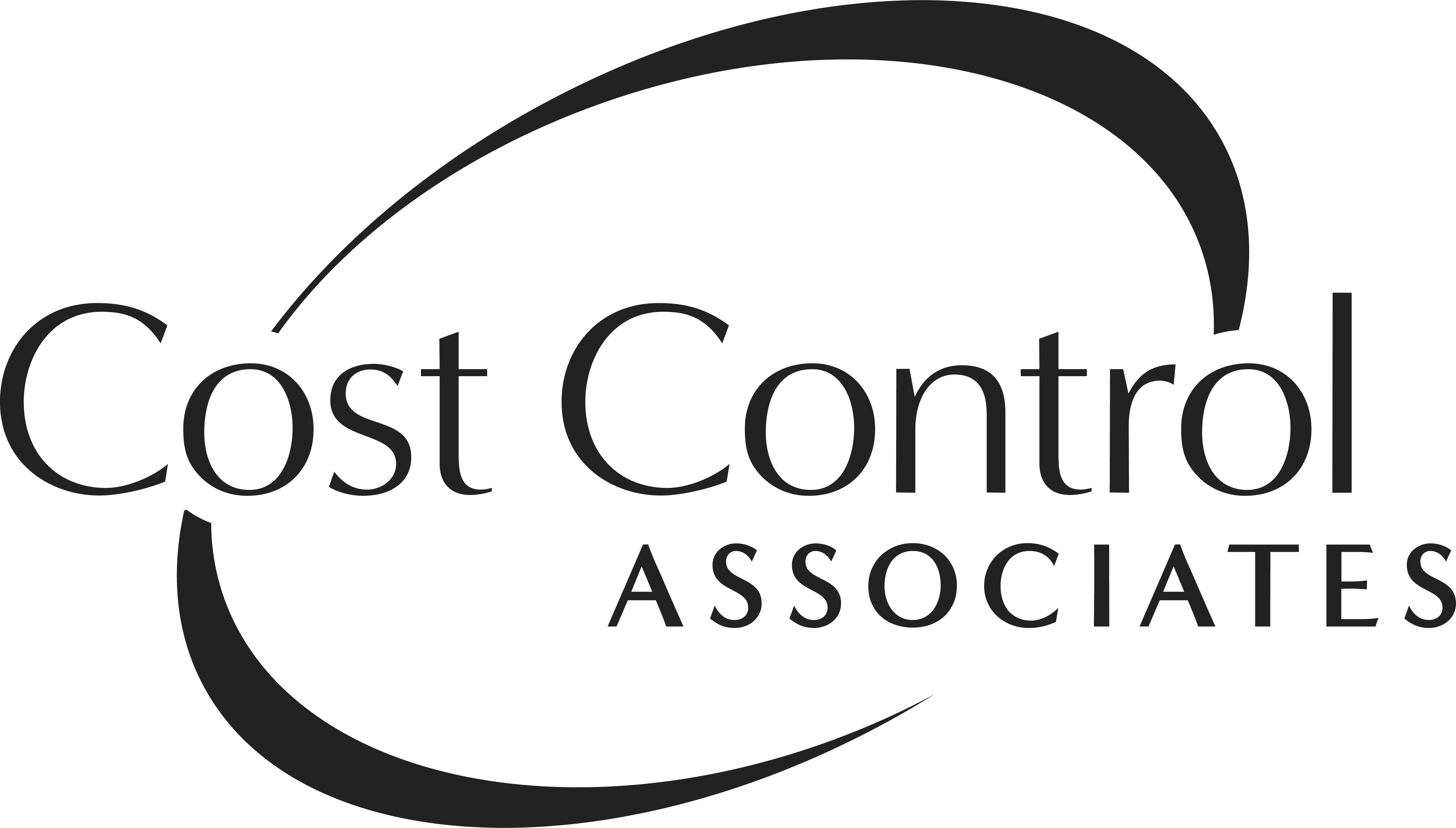Last fall SIB Fixed Cost Reduction announced its merger with Cost Control Associates, thereby expanding SIB’s ability to help clients with overall energy expense management. Cost Control has helped clients better manage and reduce energy costs for nearly 30 years. As industry experts, their team has extensive experience in rate and tariff analysis, utility bill auditing, energy supply procurement, exception/variance reporting and resolution, and budgeting and forecasting. We are pleased to introduce guest blogger Brandon Sisson, Vice President of Sales, Energy at Cost Control Associates. Here Brandon explains how an energy consultant can cut your business’ energy spend.
Whether or not your business’s geographic reach spans regulated and deregulated markets, an experienced energy consultant adds expertise to your operation by focusing on your energy markets full-time. A skilled energy consultant is well-versed in the history as well as the predicted trends for energy supply and pricing. When you bring that kind of knowledge into your organization, it can save you as much as 25% on your energy spend.
You may think you and your team are best equipped to manage your company’s energy spend because you know your facilities, operations, and costs better than anyone. However, when it comes to saving money on energy expenses, the real value comes in understanding the energy marketplace and applying that knowledge to your company’s practices. That is where the true value of an energy consultant comes into play.
Every Energy Market is Different
The price of energy is not always readily apparent. Your choices for electricity or natural gas depend on the geography and state regulations for each area where you do business. If you operate in the southeastern states where the electricity market is regulated, your price options may be limited, but you can still do things to reduce costs.

If your business is in the deregulated, open-choice states of Texas, Illinois, or the Northeast, you can shop and buy electricity from the third-party supply market. In California, Michigan, and Oregon, electricity is regulated, with limits and barriers to entry for deregulated opportunities.
Electricity is generated and transmitted differently in every market area. In Pennsylvania, there are a variety of markets within the same state. Each market has its own pricing pressures that can be hard to play to your advantage unless you thoroughly understand how they work. You may lower your energy spend in one market but end up raising it in other in-state markets.
Because most pricing opportunities lie within deregulated markets, many companies ignore their energy spend in regulated markets. They think the price is the price, and it can’t be negotiated. That may be true, but you still have options. There may be more advantageous rate classes that your usage or facilities qualify for. There can be hidden savings and possibly even refunds available to you.
A skilled energy consultant who watches all energy markets on a daily basis has extensive knowledge to sort out the different markets to find and vet the providers that best match your business needs.
The Time to Save on Energy is Now
The pandemic has cut energy demand over the last year to 15 months, and that has left a lingering effect on pricing. With numerous businesses closed or employees working from home, decreased demand has left excess natural gas supply sitting in storage. Because 40% of U.S. electricity generation is fueled by natural gas, excess supply dictates lower pricing in both gas and electricity markets. With an uncertain short-term future ahead, risk management is at a premium.
The emergence of renewables is another factor in electricity pricing. Electricity generated from fossil fuels used to be cheaper than renewables, but as installations expand and knowledge increases, renewable energy is growing more economical and available.
The EIA reports that biofuels, hydropower, geothermal, wind, and solar generated about 11% of U.S. energy consumption in 2019. With state-mandated clean energy targets and improvements in renewable energy generation, America is on track to get 23% of its electricity from renewables by 2030.
Financially and politically the climate is right for thinking “green.” For companies wanting to go in that direction, the earth-friendly mindset will lead to more and more opportunities to purchase renewables at a better price.
When considering pricing and how it affects your business’s bottom line, you don’t want to “wait and see” how things turn out in these variable markets. The longer your energy spend goes unmanaged, the more you will spend and the more savings you will lose. If you look at recent events in Texas, a wait-and-see approach left many consumers at the mercy of the market when supply restrictions suddenly drove pricing sky-high.
It’s smart to be proactive in managing your energy costs and supply contracts. An experienced energy consultant understands the markets and knows when to buy and when not to buy as well as how much to buy and how to buy. Energy load is energy load, no matter what kind of facility you run. A consultant with 20+ years in the energy marketplace is going to quickly understand whatever load shapes your facilities have, the kind of generation you depend on, and how that plays out in the energy marketplace.
How and When Do Energy Savings Begin?
You want to find an energy consultant with a well-rounded experience and broad knowledge but don’t mistake size for quality. Many larger energy suppliers and equipment manufacturers have added consulting to their repertoire. If your annual spend is less than $50 million per year, you may get lost in the shuffle at one of these larger firms where their main focus will be serving much larger clients.
An unbiased energy consultant who is not affiliated with a supplier or manufacturer has no allegiances to protect and is, therefore, better able to act solely in your best interests. A smaller, nimbler energy consultant also has the flexibility to tailor programs to fit your needs.
How much money can you save and how fast can it happen? If your company doesn’t have an energy manager and is paying default utility rates in deregulated markets, an experienced energy consultant can save 15-25% by tapping third-party market supply for the purchase of electricity and natural gas. If you have a consultant or broker who isn’t doing a good job at leveraging prices for you, you might save 5-10%. You can usually expect to see a positive impact within two quarters.
For third-party suppliers in deregulated markets, you’ll see better pricing as soon as your current contractual terms for supply end and a new contract begins. If you are on utility provider rates in deregulated markets, you’ll see an impact within two months, because you’ll leave the utility and go straight to the supply market. In regulated markets, any discovered savings and rate changes would take effect within two to three months, with results showing up in the fourth month.
Companies often ask how they can manage their energy costs down to zero. While that is not yet possible, the market is moving back to a place of historical lows.
Risk management is extremely important. If you’re not paying attention to the energy markets and just let those prices ride the market, there will come a time when you are going to be hit hard by a market uptick or spike you can’t control. It’s all about managing that risk and getting your business the best rates available for all the markets where you do business.

Brandon Sisson is vice president of sales for energy at Cost Control Associates, a wholly owned subsidiary of SIB Fixed Cost Reduction. His energy management experience includes regulated rate review, strategic energy sourcing, utility bill processing and demand-side energy efficiency/sustainability initiatives. Brandon has assisted Global 1000 customers with energy spend optimization across a broad spectrum of industries. Prior to joining Cost Control Associates, he held energy-focused leadership roles for Accenture, Insight Sourcing Group and Procurian.

